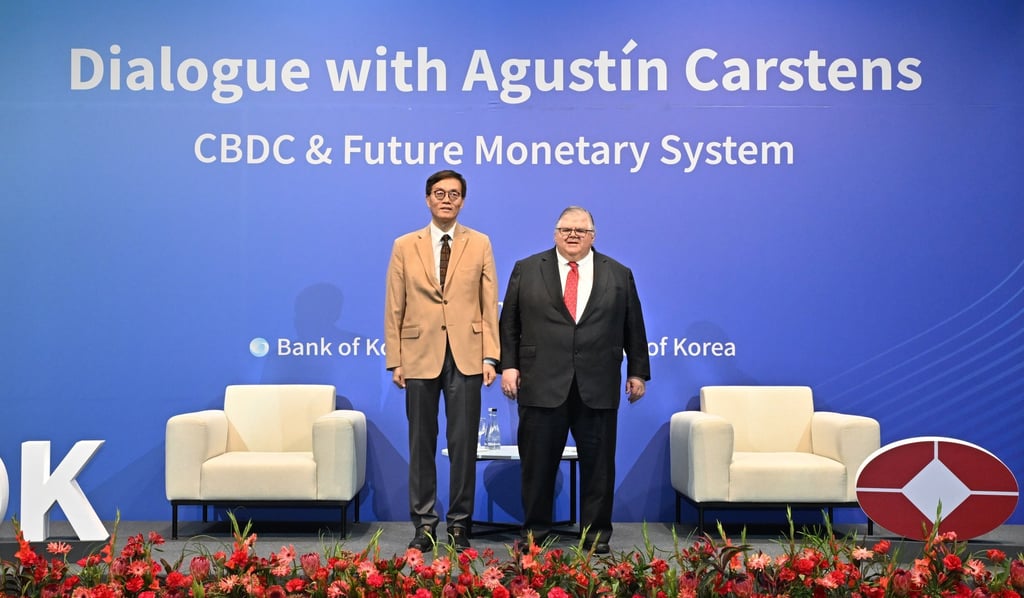South Korea to begin digital currency pilot in late 2024 with 100,000 citizens joining experiment
- Under the pilot project, the selected individuals can buy goods using the country’s central bank digital currency
- The programme is intended to address challenges with existing government voucher systems, such as high transaction fees and fraudulent claims

The BOK, Financial Services Commission and Financial Supervisory Service announced the plans, following the visit of Agustin Carstens, general manager of the Bank for International Settlements, to the BOK on Thursday.
The plans are a developed version of an earlier announcement made in October that disclosed the central bank’s intention to have real-world experiments on CBDC.
Under the pilot project, 100,000 selected individuals can purchase goods with deposit tokens issued by commercial banks in the form of CBDC, similar to using a voucher at stores. Selected commercial banks will recruit participants around September to October of the following year, and will continue the project for three months.

The BOK said the digital currencies have the potential to significantly address challenges with existing voucher systems, such as special grants awarded during Covid-19 and childcare grants offered by the government. The challenges include high transaction fees, slow settlement processes, limitations of post-transaction verification and concerns over fraudulent claims.